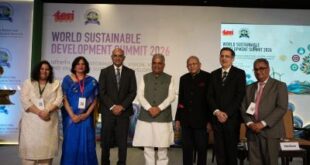Language proficiency assessment that is used to evaluate candidates for success in academic or professional English-speaking settings has traditionally relied on standardized tests, which, despite their merits, face challenges such as rigidity, cost, and logistical barriers. The one-size-fits-all nature of these tests fails to capture the diverse language skills and cultural nuances of non-native speakers.
However, the Duolingo English Test (DET) is transforming this landscape by harnessing technology to enhance accessibility, personalization, and security in language assessment, propelling us closer to a future where language proficiency serves as a bridge rather than a barrier.
3 ways the Duolingo English Test uses technology to improve Education:
Increased accessibility: The Duolingo English Test revolutionizes language assessment by offering a flexible, at-home testing option. Test-takers can access the assessment anytime, anywhere with just a computer, internet connection and a quiet space. This approach eliminates financial and logistical obstacles, democratizing access to language proficiency evaluation globally.
Personalized Test Experience: Using artificial intelligence and machine learning, the DET delivers adaptive assessments that cater to each test-taker’s proficiency level. The personalized experience not only enhances accuracy but the gamified and user-friendly interfaces make language assessment engaging and less intimidating. The DET has been using GPT-3 since 2021, and recently upgraded to GPT-4, to experiment with new item types that make the test more effective at assessing proficiency.
Advanced Test Security: The DET innovative approach to proctoring combines human-in-the-loop AI with human expertise to maintain test integrity. Advanced statistics, computer vision, and natural language processing analyze over 75 behavioral and environmental factors, ensuring a secure testing environment. If an algorithm detects a potential security breach, human proctors analyze the flagged test to determine rule violations. After multiple human reviews, a certification decision is made within 48 hours, allowing test takers to promptly share their scores with institutions.
As the DET leads the way in AI-driven test development, it is also helping to develop industry best practices for working in this rapidly-developing area. In 2023, the DET used AI in countless ways to improve the test taker experience, including making its free practice test available on mobile, and fine tuning its scoring algorithm to more accurately predict scores. At the same time, it also published the first Responsible AI standards for Assessment, for ensuring accountability, transparency, fairness, privacy, and security in testing.
 Newspatrolling.com News cum Content Syndication Portal Online
Newspatrolling.com News cum Content Syndication Portal Online






